-
Reviewed yesterday
Richard N
Great experience, Kathmandu and 8 day EBC tour from Lhasa!
What a great experience, thoroughly enjoyable from start to finish, helped by the meticulous planning by Susan Lee in the office in Chengdu and by the hard work of our guide Lhak Pa. I visited Kathmandu and the office also organised the Mountain Flight passed Everest which was simply awesome, then a personal tour of several of the temples in Kathmandu and then some villages outside the city. This was then followed by the 8 day Base camp tour from Lhasa, with a really friendly group of 10 travellers, a fantastic time was had by all, and capped off by the two day train journey to Shanghai. Hotels were all good and the whole trip exceeded my expectations, so I can recommend the company, the organisation and the guide!
-
Reviewed 3 days agoo
Liz K
Sydney, Australia
Very enjoyable week in Tibet
Great trip, Daniel our guide was very knowledgeable about Tibetan culture and patiently answered our many questions. Good balance of activities - seeing Everest was undoubtably the highlight for me.
-
Reviewed 4 days ago
TomasNM
Oslo, Norway
Kora around mount Kailash
Spiritual and Mind Blowing
15 Days Kailash and Manasarova Small Group Tour - with the guide Jamyang Tsering and driver Donten. I was satisfied with pretty much everything. The bus was comfy, the driver responsible, the guide bent over backwards to satisfy everybody and to help people who got sick. Its not easy to get to Kailash because of the terrible roads and altitude but in the end its all worth it :).
-
Reviewed 1 week ago
aaruleswaran
A different experience of travel
This 15 days trip in Tibet was a wonderful discover, between culture, history, trekking and spirituality. Our guide Jamyang Tsering kindly took care of everyone in the group and shared his local experience about life conception of tibetans. I highly recommend him and Tibet Vista !
-
Reviewed 2 weeks ago
Vincefrench-travel
Kailash Trek and EBC
The most fortunate and fascinating trip of my life! Guided by Jamyang Tsering from Tibet Vista. Starting for Drepung & Sera Monastery, Potata Palace, Kora @ Pentchant Lama’s Monastery In Shigate to EBC, Lake Manasarovar and Kailash Kora. Butter tea with Tibetian nomads and ginger coke for Altitude sickness and glaciers. Almost 2 weeks of memorable experience! Less is more. Tibet may not be fully developed (need better toilets :-p) but the experience is priceless! Thank you!
-
Reviewed September,2019
GertMG
Amazing two and a half weeks in Tibet
Cannot say enough good about our guide, Jamyang Tsering, who was knowledgeable and enthusiastic about Tibetan culture and history. He was super personable and easy to spend our time with, polite and fun without being intrusive. Jamyang also he worked hard to accommodate our wishes and interests, and ensured experiences like being able to try local food. This company is also good in that it works with Tibetan guides, which is helpful for real insight into Tibetan culture. It was a lifetime experience.
-
Reviewed September,2019
YangLiao2019
Toronto, Ontario
Mt Everest base camp tour
It is a fantastic tour. The tour is well organized and our tour guide, Tenzin Jayang, is amazing. He is very knowledgeable and truely cares for each individual in our group. My son has altitude sickness in the first two days. He keeps inspire him, also provide medication. My son recovers very soon, so he enjoy the rest of the tour. After this, he said he would come back to Tibet again. We are very grateful for Tenzin's help.
-
Reviewed September,2019
Stefano P
Perfect Tibet and Mt. Everest experience
All the trip was perfect. The hotels was so much better than i expected. Excellent position near the old city center. The room was clean and very confortable. The guide Jigme was excellent, speack english perfetcly, gives excellet explanation of all sites we visited, and also is very simpatic, and very kind. He take care of all the guest, and prepared always the document, permit etc, and we just have to relax and enjoy the trip. He also offer us a welcome dinner.The programme was very nice, and we also visited a local tibetan family.More
All the trip was perfect. The hotels was so much better than i expected. Excellent position near the old city center. The room was clean and very confortable. The guide Jigme was excellent, speack english perfetcly, gives excellet explanation of all sites we visited, and also is very simpatic, and very kind. He take care of all the guest, and prepared always the document, permit etc, and we just have to relax and enjoy the trip. He also offer us a welcome dinner.The programme was very nice, and we also visited a local tibetan family.
I raccomande a lot this company and this guide.
Thank you Tibet vista, and thank you for everithing Jigme, hope to see you again!!Less
-
Reviewed September,2019
nadiats
Travel to Tibet and treking the Himalayas with amazing tour guide Ga Rong
We were extremely happy with Travel Vista and their services, especially our tour guide, Garong our driver, Dodji. We were extremely impressed with the knowledge, communications skills, professionalism, perfectionism, and willingness of our guide, Garong, to help us in all aspects of our journey, including helping accommodating our daughter's need for gluten free diet and encouraging our young boy, 8 years old, on a arduous 1-week trek on the Himalayas. Garong is the best guide we have ever come across and he deserves our highest recommendation!
-
Reviewed September,2019
Yin G
8 day trip in Tibet
A warm thank you to Jamyang tsering, our tibet tour guide. As far as tour guides go, he was a beyond exceptional. Our experience in tibet would not have been as fulfilling as it was without his knowledge and understanding of tibetan culture and religion!
-
Reviewed September,2019
Doru Amedeu G
Jerusalem, Israel
8 days Lassa to EBC
First my logistic was perfect organized by Mr.Jim Pel that provided me with the necessary tickets and aprovals.
Second the tour guide Mr.Tenzen was very friendly ,hepful and with profound knowledge of the history and culture of Tibet,taking care of all our necessities.
The acomodation was excelent and according to our expectation,even we choosed to sleep in tent house and not in a regular house. The owners of the tents tried their best to provide us with maximum confort according to those specific conditions.More
First my logistic was perfect organized by Mr.Jim Pel that provided me with the necessary tickets and aprovals.
Second the tour guide Mr.Tenzen was very friendly ,hepful and with profound knowledge of the history and culture of Tibet,taking care of all our necessities.
The acomodation was excelent and according to our expectation,even we choosed to sleep in tent house and not in a regular house. The owners of the tents tried their best to provide us with maximum confort according to those specific conditions.
Because I've taken medecines according to advices of the doctor I haven't any problems with the altitude. Indeed in the first days I was moving slowly (the same advice our guide tour gave us) in the last days I could even to run. And seeng the Everest at sun set (with the help of the weather) was indeed very special.
I'll recomend this tour to everyone who don't have special problems with the health.
Me for example I have controled blood high tension but with the regular medecines I had no problems Doru Gheorghiescu. Less
-
Reviewed September,2019
RajuV7
Best Trip I have ever had in my life..7 days Lhasa and Kathmandu overland trip.
I should say its 10 out of 10, very nice excellent tour, all our permits/tickets/air/train/hotels/tents/everything was arranged in advance. Cindy our tour consultant was amazingly active and quite fast in arranging my travel. I had an excellent trip also who accompanied us with our Tour guide by the name Tsedon, she was amazing and fantastic, who had full knowledge of the Tibetian history and details of each and every visit which we made during the entire trip. Very friendly,helpful, and she attended to all our needs and made us really comfortable during the entire journey.More
I should say its 10 out of 10, very nice excellent tour, all our permits/tickets/air/train/hotels/tents/everything was arranged in advance. Cindy our tour consultant was amazingly active and quite fast in arranging my travel. I had an excellent trip also who accompanied us with our Tour guide by the name Tsedon, she was amazing and fantastic, who had full knowledge of the Tibetian history and details of each and every visit which we made during the entire trip. Very friendly,helpful, and she attended to all our needs and made us really comfortable during the entire journey. thanks also to Tibet Vista organizers which was Cindy who had also arranged the hotels and Bus/train/flight and all the Visas/permit issues. I just felt so sad that the tour ended 7days, which we wished to be more...
Anyways I am definitely will go for the other Tours in the near future with Tibet Vista., I had no regrets and hope to meet with the same Tour Guide Ms Tsedon. Thankyou Tibet Vista. Less
-
Reviewed September,2019
Kathryn H
Minneapolis, Minnesota
15 Day Mt. Kailash Tour
Traveling to Tibet was a once-in-a-lifetime trip!
Kristin was an amazing advisor for making my travel plans, and was very detail oriented and patient with any and all questions.
My experience of Tibet was incredible--- on a spiritual, personal and intellectual level. I learned so many things from my guide Tenzin Leo. Right from the beginning he made me feel very comfortable and excited to embark on the adventure. His kind and happy demeanor set the tone for the trip and quickly helped our small group of five people feel at ease. I did not know anyone in my group before heading out and I will affirm that this experience is for everyone and do not be hesitant to sign up.More
Traveling to Tibet was a once-in-a-lifetime trip!
Kristin was an amazing advisor for making my travel plans, and was very detail oriented and patient with any and all questions.
My experience of Tibet was incredible--- on a spiritual, personal and intellectual level. I learned so many things from my guide Tenzin Leo. Right from the beginning he made me feel very comfortable and excited to embark on the adventure. His kind and happy demeanor set the tone for the trip and quickly helped our small group of five people feel at ease. I did not know anyone in my group before heading out and I will affirm that this experience is for everyone and do not be hesitant to sign up. I highly recommend Tenzin Leo as a guide. When I was winded on the trail he was incredibly supportive and positive, validating my experience. By the end of the travels we felt like family. Do not miss out on this experience--Less
-
Reviewed September,2019
ecoshamanism
Mount Kailash 13 day tour
An interesting tour of monasteries, local towns and an epic trek round Mt Kailash with an extremely good guide, Nawang Tenzin. The Tibetan people are really lovely with beautiful smiles and the land is the same.
Beware the long bus journeys and 3 day trek which was difficult in terms of altitude.
-
Reviewed November 2, 2019
misstcooney
Shanghai, China
15 day tour to Everest Base Camp and Mt Kailash
I cannot recommend it highly enough!
Kristen liaised with plenty of information prior to the trip and warned about the road conditions, the toilets, lack of showers in places etc. I think all of these points are really important, and I appreciated being mentally prepared for all of these, as well as bringing wet wipes, prunes, toilet paper and a neck pillow. There are long days in the bus where natural toilets are way better options than manmade ones. I was very appreciative as my tour guide Pasang was always considerate of the fact I was the only female on the trip, and he was proactive in finding me a spot.More
I cannot recommend it highly enough!
Kristen liaised with plenty of information prior to the trip and warned about the road conditions, the toilets, lack of showers in places etc. I think all of these points are really important, and I appreciated being mentally prepared for all of these, as well as bringing wet wipes, prunes, toilet paper and a neck pillow. There are long days in the bus where natural toilets are way better options than manmade ones. I was very appreciative as my tour guide Pasang was always considerate of the fact I was the only female on the trip, and he was proactive in finding me a spot.
The tour was broken up with days traveling and monetary visits, time taken at the lake, Glacier and other various photo opportunities. Pasang gave us ample information to understand what was happening, what we were doing next and from the outset he called us friends and really meant it. He was very relaxed and approachable and managed to explain complex ideas in the monasteries etc in an easy to digest way, even for people with no prior knowledge. Pasang was awesome in that he kept tabs on everyone’s interest/energy levels and adapted his level of detail accordingly. He also provided coffee at break times on the journey which was a saviour to most on the bus each morning.
The one thing I was a little nervous about prior to this trip was altitude sickness. What I really liked about this tour is that you gradually get higher and higher in altitude so it gives you a chance to adapt. You get a few days in Lhasa to become accustomed before getting more out and about. I think actually Pasang switched up the order of a nights accommodation to make it easier for us finding it harder to adjust. One thing I recommend that saved me and my afternoon/early morning headaches (once I had had plenty of water) was coke. Normally don’t drink the stuff but it really did help with my aggressive/persistent headaches. These are available most places so that was lucky. Pasang also had plenty of oxygen canisters available but I wasn’t feeling short of breath so didn’t use them.
Highlights for this trip are definitely Everest Base Camp and Mt Kailash, plus a surprise Glacier on route. The driving days are long to get to Mt Kailash but 100% worth it. Our driver did such a great job. The roads are mostly sealed, but even so, he had to watch out/slow down for holes/uneven surfaces. Roads are being improved at the moment which meant we had to off-road for a whole section but our driver was confident throughout. Definitely bring a neck pillow, you get bounced around a fair bit which rocked quite a few people to sleep each day. You really start getting a feel for rural Tibet by taking the time to get that far west and the fact that basically everyone is hiking the Kailash Kora as part of a pilgrimage adds to the experience. We saw only one other group of non-Tibetans during the 2.5 day hike. Day one of the hike is a nice stroll, and a great way to get your body used to it all. Day two is a big day. Early start to tackle a pass which you keep thinking is almost in reach. The ground is rocky and I definitely recommend poles (which you can pick up for cheap in the town you begin the walk). The downhill part is quite steep and more loose dirt than the other side. After you have made it down that section you are welcomed to a tea house for lunch and then it is flat and chilled for the afternoon. Day three is a breeze although the body is pretty knackered by this stage. Definitely pack as light as possible! Water is available in all of the tea houses along the way so carrying a couple of small bottles at a time is fine. Food is instant noodles during the day, so you tend to get a bit done with them, but they are enough. Less
-
Reviewed September,2019
Aida S
Tibet/Lhasa-Mount Everest base camp- Nepal border
Fantastic 8 day trip starting Tibet-Lhasa 3 days,5 days through Tibet to Mount Everest base camp and then on to Nepal's border. The whole trip was well planned by Tibet Vista, the guide was very knowledgeable and told us everything we needed / wanted to know about historical monuments and culture. There was plenty of time at all the different sights we were at, so no stress. All the hotels were of very good standard and good breakfast. We are super happy with our trip through Tibet, we will go home so much richer on everything.




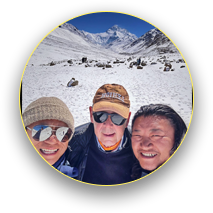







 View Trip Map
View Trip Map
 5.0
5.0 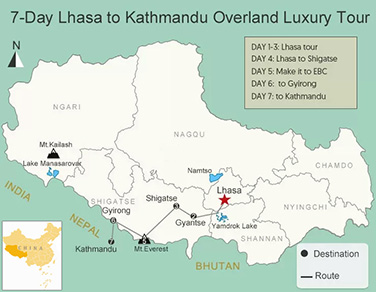

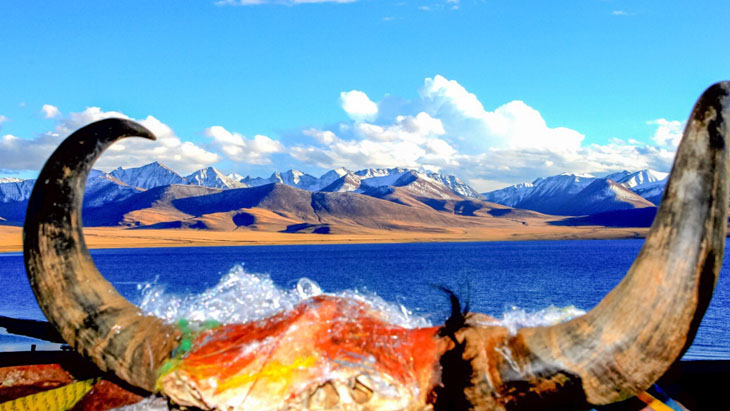
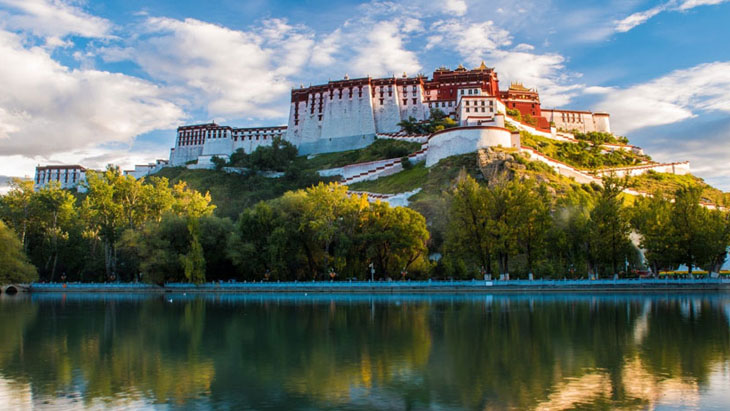
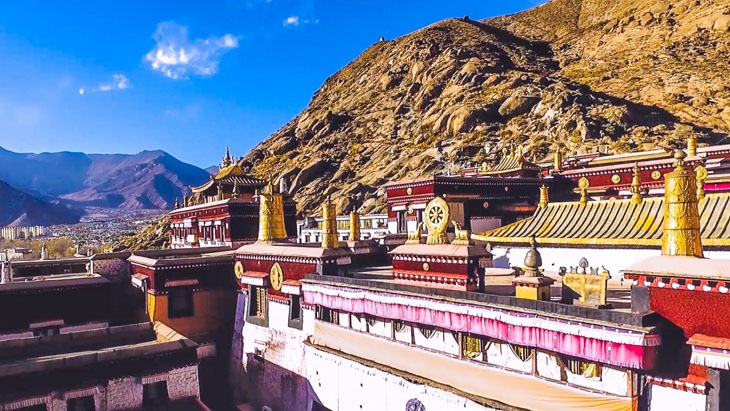
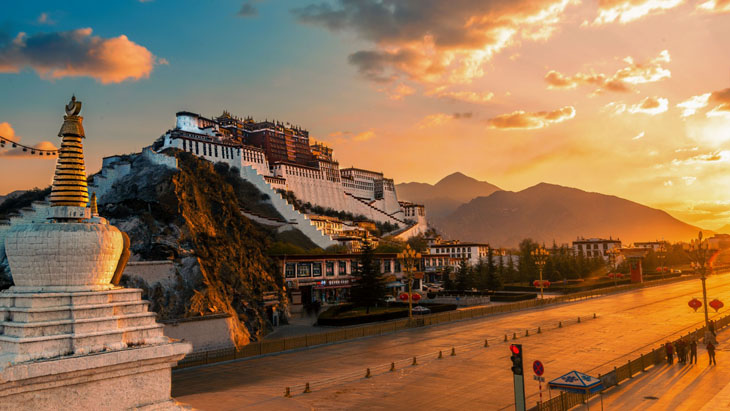
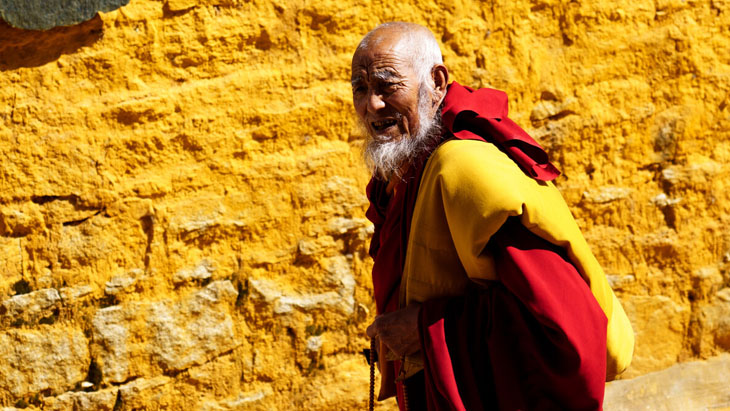





















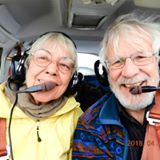

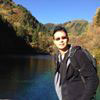



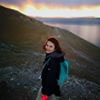


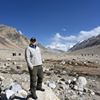
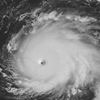
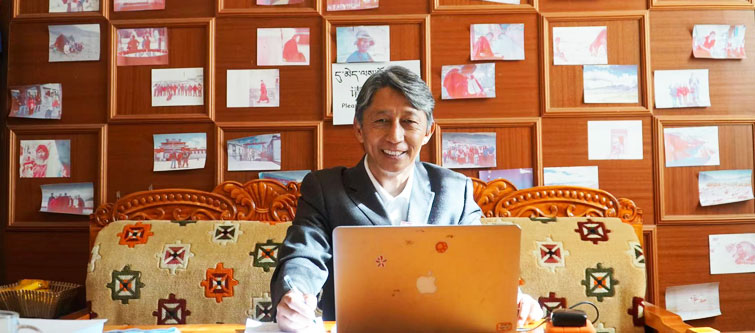
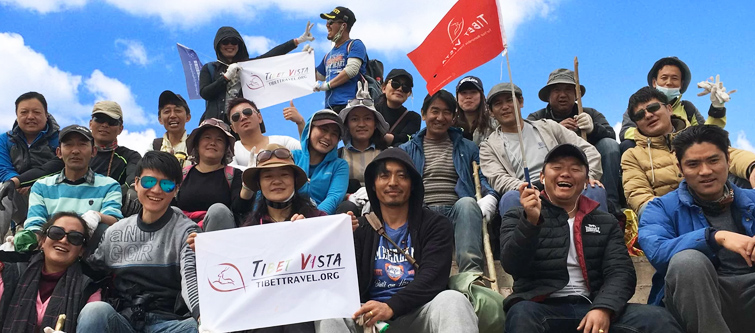
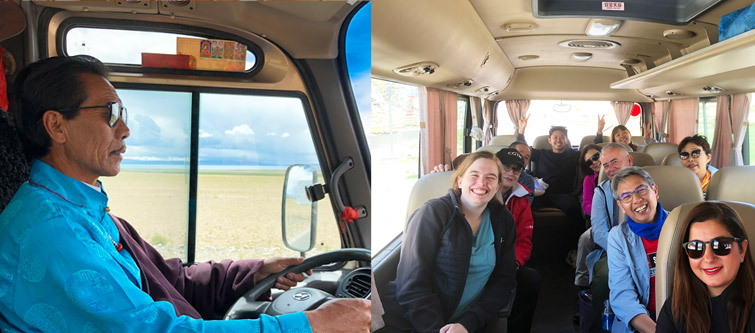
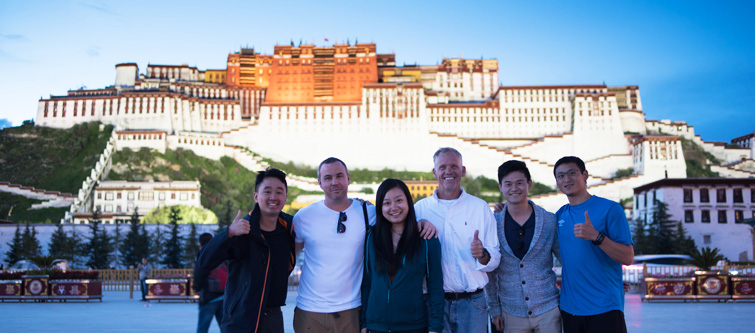
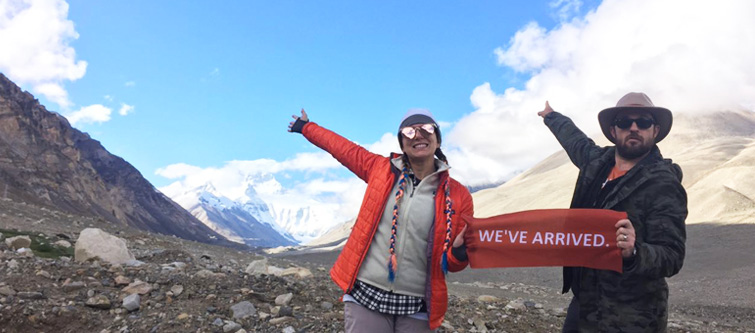

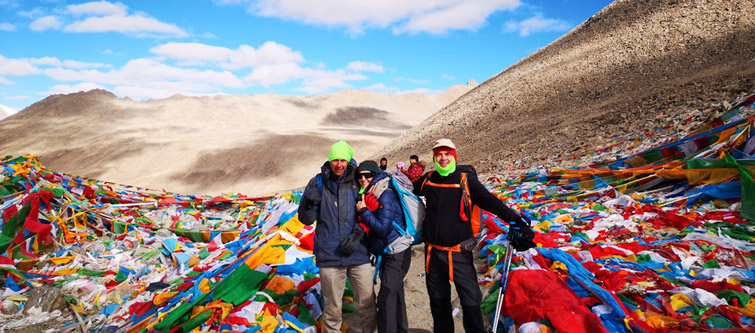
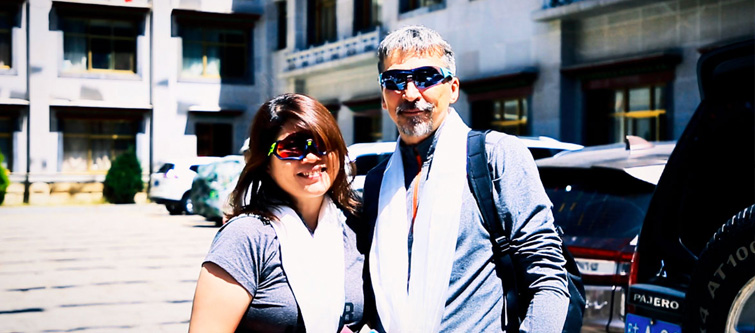
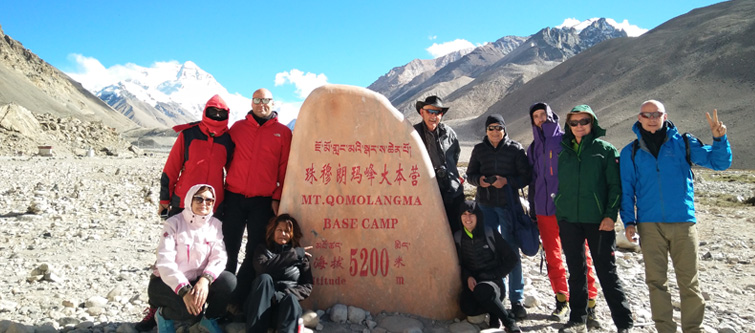
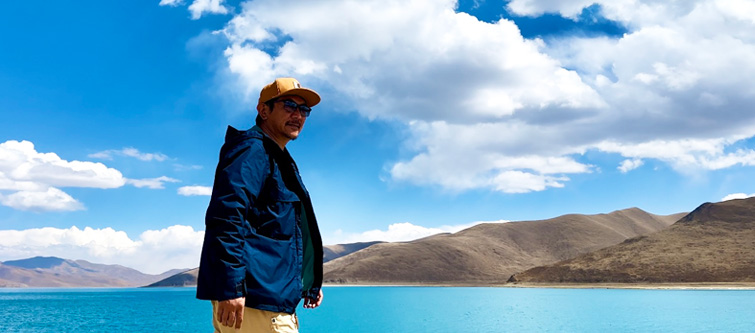
36 Comment ON "7-Day Lhasa to Kathmandu Overland Luxury Tour"
Asked by Goldliam Soo** from N/A
lm from nyc in the usa how much is your 13 day Mt Kai lash tour in September or June
Hi, lm from nyc in the usa how much is your 13 day Mt Kai lash tour in September or June? And approximately how much would would the airfare be round trip? Thank you
Asked by Liliana Me** from Macau
plan a 7-8days trip for me and my boyfriend in April
Hi! I would like to plan a 7-8days trip for me and my boyfriend in April (3rd to 10th ideally) to Nepal, Tibet, and, if possible, Bhutan. Do you think it would be doable? Based on what I read, there are some places/things to do to consider: Nepal: Everest Base Camp trek and the Annapurna Circuit, ancient temples, sacred sites like Lumbini, Kathmandu, Tibet: The Potala Palace in Lhasa and the Jokhang Temple. eventually the holy Mount Kailash or the high-altitude plains. Bhutan: Thimphu, Paro, and the famous Tiger’s Nest Monastery. To take part in cultural traditions, yoga, meditation... Of course I am open to any recommendations you could make. For your reference, we are both based in Asia: him, in Bangkok and myself in Macau. Thank you so much for the information you could provide and, if possible, an estimated budget for your offer.
Asked by Ke** from Singapore
Cycling Tour to Mt Kailash
Hi , we are planning a Cycling Trip once Tibet opens for Tourism. The plan is we shall arrive to Kathmandu , travel to the border and enter via Kerung. Can you pls send a day to day Itinerary starting from Kerung - Lake Manasarovar - Darchen - Asthapath. We shall go around Kailash on foot and resume Cycling back to Kerung. We are a Group of 6-8 persons. Thanks Pls send ur reply to Kevin
Asked by Debo** from USA
Please can you tell me the prices and dates for the Tibet Luxury Tour.
Also, could you please provide a detailed itinerary - I want to see how many hours are spent on buses/vehicles. Thank you! Deborah
Asked by S** from HongKong
Tibet Tour from HK
May I know if holding Mainland Travel Permit for HK Residents. is it also need to get the visa permit to Tibet and what is the procedure if need to apply? Thank you
Asked by Na** from USA
Is Kailash Mansarovar Trip open for Indian Passport Holder?
Is it open for Indian Passport Holder?
Asked by A** from Singapore
Enquiry on private tour
We are planning a trip from Hong Kong to Tibet during the 12th to 21st of April. We want a private tour that covers all the scenic places as well as the EBC. Please advise an itinerary along with the cost breakdown. Thanks.
Asked by Na** from Canada
We would like to take the train from Xining to Lhasa
Asked by Gr** from Canada
The "Tibet Entry Permit" should be apply
Asked by Tam** from Singapore
Sightseeing Potala Palace